 Next Page -
Next Page - 
| The Aurora or Northern Lights | |
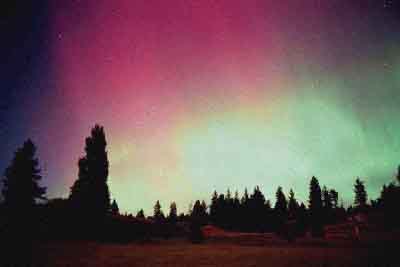 |
Here is the file: n09a-aurora-Wicklund4TN.jpg
Courtesy of NASA at http://www.nasa.gov |
| Another Photo of the Earth's Aurora | |
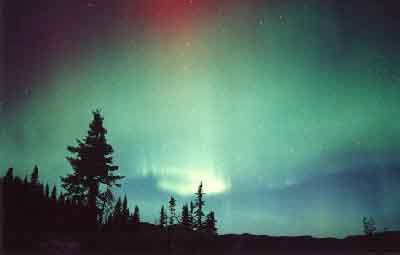 |
Here is the file: n09b-aurora-cantin5TN.jpg
Courtesy of NASA
at http://www.nasa.gov |
| View of The Aurora - The Northern Lights | |
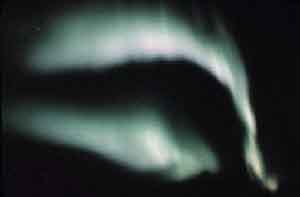 |
Here is the file: n09c-sol-auroraTN.jpg
Courtesy of the author at www.solarviews.com/eng/author.htm
|
| A Beautiful Picture of Southern Lights | |
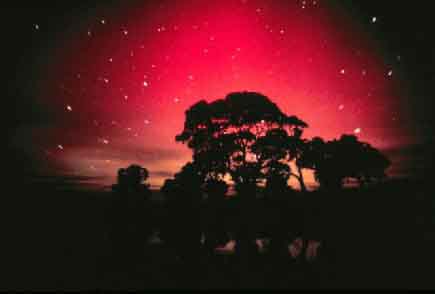 |
Here is the file: n09d-sol-southern-lightsTN.jpg
Courtesy of the author at www.solarviews.com/eng/author.htm
|
| A
Complete Solar Eclipse and Video
of The Enterprise Space Shuttle Landing |
|
 |
Files: n09e-sol-eclips91TN.jpg
and Video file: n09e-ALT_Landing.mpg Courtesy of NASA
Click Here For Video Showing
Click Here For a Voice Description of
The Space Shuttle n09e-n-qtime-Shuttle.mov
Listen to Bubba's Voice |
| NGC 7635 - The Bubble Nebula | |
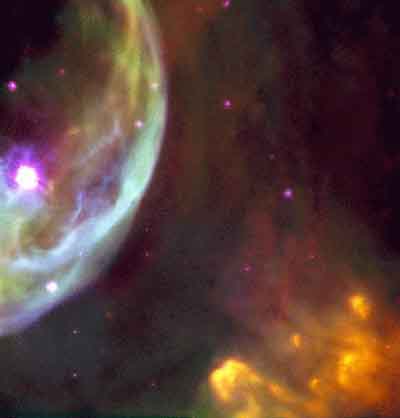 |
Here is the file: n09f-n-bubble-9831wTN.jpg
Courtesy of NASA
at http://www.nasa.gov NGC 7635, the Bubble Nebula, is 10 light-years across, more than
twice the distance from the Earth to the nearest star. The nebula is made
up of an expanding shell of glowing gas surrounding a hot, massive star
in our Milky Way galaxy. This shell is being shaped by strong stellar winds
of materials and radiation produced by the bright star at the left, which
is 10 to 20 times more massive than our Sun. These fierce winds are sculpting
the surrounding material, composed of gas and dust, into the curve-shaped
bubble.
|
| A View of the Earth's Aurora | |
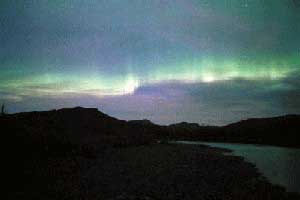 |
Here is the file: n09g-n-aurora-Russell4TN.jpg
Courtesy of NASA at http://www.nasa.gov |
| The Northern Lights or Aurora Again | |
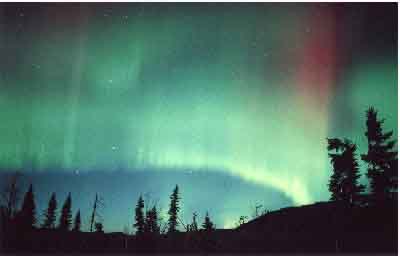 |
Here is the file: n09h-n-aurora-cantin4TN.jpg
Courtesy of NASA at http://www.nasa.gov |
| This
Lovely Nebula is Known
as the Blinking Eye Nebula |
|
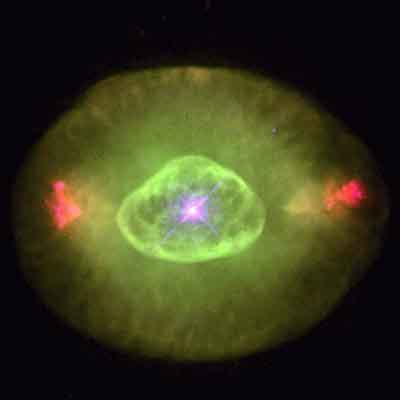
(University of Washington) and NASA |
Here is the file:
n09i-n-blinkingeye-97_72TN.jpg Courtesy of NASA at http://www.nasa.gov The colorful planetary nebula phase of a sun-like star's life is brief. Almost in the "blink of an eye" - cosmically speaking - the star's outer layers are cast off, forming an expanding emission nebula. This nebula lasts perhaps 10 thousand years compared to a 10 billion-year stellar life-span. The lovely nebula NGC 6826, also known as the Blinking Eye Nebula, has mysterious red "fliers" seen on either side of the Hubble Space Telescope image. Are they also expanding outward from the central star? If so, their "bow shocks" point in the wrong direction! |
| Spiral
Galaxy NGC 7742
Probably Powered by a Black Hole |
|
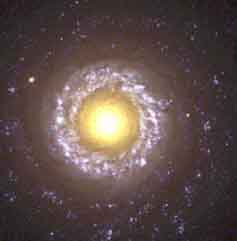 |
Here is the file: n09j-n-galaxy-NGC7742TN.jpg
Spiral galaxy NGC 7742 is not a run_of_the_mill
spiral galaxy. It is known to be a Seyfert 2 active galaxy, a type of galaxy
that is probably powered by a black hole residing in its core.
|





|
To contact Jean & Warren -
|
|
|
|